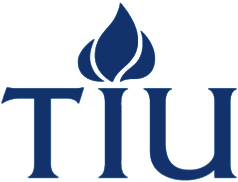 One major obstacle on the path to a new life for those struggling with homelessness is the need to deal with their legal troubles. Previous criminal records can prevent future employment. On top of that, dealing with child custody matters, creditor problems, and government benefits pose other challenges. With more than 35,000 men and women living on the street, and 13,000 children without a home in the county, the only place in California with more individuals who are homeless is Los Angeles.
When the Village of Hope - Orange County Rescue Mission (OCRM) opened and its first residents came to live there, they quickly noticed a need for legal assistance. The residents that pass through their gates are often burdened by the mistakes of their past that hold them back from finding employment or housing. The OCRM commissioned an attorney that had been volunteering with them, in order to find a way for it to open a legal clinic on site.
Meetings began with law schools in the surrounding area and it became very clear that Trinity Law School (TLS) was the perfect fit. Not only is the OCRM geographically close to Trinity, but its faith-based mission of serving others is closely aligned with the University’s. In 2009, the Trinity Law School Legal Clinic officially opened and has been assisting OCRM’s residents ever since.
One major obstacle on the path to a new life for those struggling with homelessness is the need to deal with their legal troubles. Previous criminal records can prevent future employment. On top of that, dealing with child custody matters, creditor problems, and government benefits pose other challenges. With more than 35,000 men and women living on the street, and 13,000 children without a home in the county, the only place in California with more individuals who are homeless is Los Angeles.
When the Village of Hope - Orange County Rescue Mission (OCRM) opened and its first residents came to live there, they quickly noticed a need for legal assistance. The residents that pass through their gates are often burdened by the mistakes of their past that hold them back from finding employment or housing. The OCRM commissioned an attorney that had been volunteering with them, in order to find a way for it to open a legal clinic on site.
Meetings began with law schools in the surrounding area and it became very clear that Trinity Law School (TLS) was the perfect fit. Not only is the OCRM geographically close to Trinity, but its faith-based mission of serving others is closely aligned with the University’s. In 2009, the Trinity Law School Legal Clinic officially opened and has been assisting OCRM’s residents ever since.
Pro Bono Legal Experience
This clinic is offered as a class to the law students at Trinity, which mutually benefits both organizations, by allowing the law students to gain practical experience outside of the classroom. Most often, the law students assist with record clearing, custody and child support cases, and debt issues. They do not offer representation but instead assist with paperwork and research, as well as legal advising. In this way, TLS students are able to educate the residents of OCRM with the goal of teaching them how to navigate the legal system, so the residents are able to continue the work they have started even after they leave Orange County Rescue Mission.
“Trinity Law School is a wonderful example of an educational institution that is not just handing out degrees, but calling their students to provide a helping hand to the least, the last, and the lost of our community.”
It is a requirement built-in to the program for the residents of OCRM to meet with the Trinity Law Clinic at least once during their program. This gives the Trinity Law students a unique opportunity of being able to meet with every resident that passes through their gates.
“Trinity Law School is a wonderful example of an educational institution that is not just handing out degrees but calling their students to provide a helping hand to the least, the last, and the lost of our community,” said Jim Palmer, president of OCRM. “We could not have imagined the wonderful effect the Law Clinic would have on these students.”
“The Law Clinic has been beneficial not only for the OCRM's residents but our students from Trinity Law School as well,” added Myron Steeves, dean emeritus of Trinity Law School. “This partnership has allowed our law students to help the community while furthering their own legal skills through this real-world experience.” Steeves served for 29 years as a law professor and 11 years as TLS dean.
This type of service is central to Trinity Law School’s mission. “We want to turn out attorneys who want to make a difference in the world, to meet the needs of people who are suffering from a lack of justice, and to defend religious liberties,” Steeves said. “And we desire to turn out students who actively make the healing of a broken world a part of their legal profession.”
Because of Trinity Law School’s service at OCRM, these people are now offered a chance to be free of many of the ramifications of their past and move forward to a self-sufficient future.

